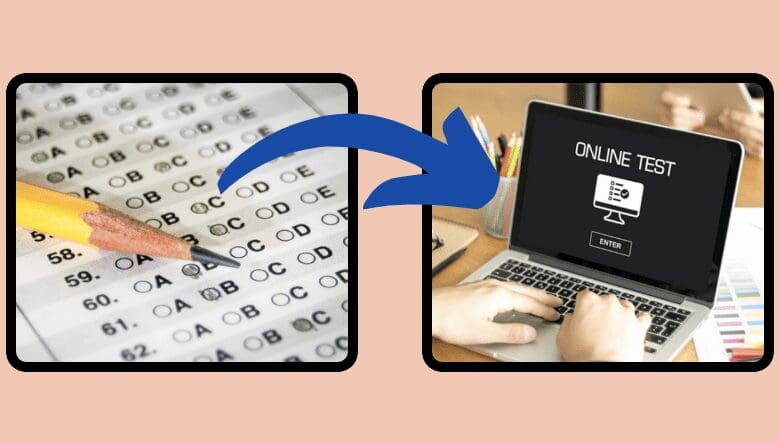The SATs – a standardized test widely used for college admissions and mandated in Delaware – will be taken exclusively online for First State students starting in 2024.
“The College Board is moving to a full digital adaptive test,” said Theresa Bennett, director of the Office of Assessment at the Delaware Department of Education.
Adaptive tests vary the difficulty level and order of questions that get asked, depending on a student’s performance within the test.
“They also made some changes as far as fewer items, like for the reading passages,” Bennett said. “Instead of having a full end reading passage with 10 questions attached to it, it’s now going to be a shorter paragraph with one question.”
Shawn Snyder, manager of assessment and instruction at Red Clay Consolidated School District, believes it will now be a more meaningful assessment.
“The old SAT was three plus hours, and that can be really challenging to schedule in a day,” he said. “So now that it’s going to be a two hour and 15 minute test, we’ll be able to fit that in before lunchtime starts, so from an organizational structural part, it’ll be easier to manage.”
He’s excited about the adaptive testing model.
“If a student gets a bunch of questions wrong, it’s going to ask them a few easier questions to find where their zone is of what they know, and then try to ask questions in that area to establish what their proficiency level is,” he said.
In decades past, he said, there’s that classic experience of going through the math section or another section and hitting a brick wall and saying “oh gosh, I have no idea how to answer any of this.”
“That should be a more meaningful experience, and it gives us some instructional reports after the fact that will allow us to hopefully help some kids gain those skills before they graduate,” he said.
The College Board announced the digital SAT in January, 2022, noting that it “will continue to be administered in a school or in a test center with a proctor present—not at home.”
Delaware is in the bottom 10 states of combined average SAT scores. On a 1600 scale, Delaware’s combined SAT average is 968.
However, this is somewhat skewed because the First State is one of a handful that require all students to take the test, so students who have no plans to go to college, or are entering a trade career, still have to complete the exam.
Both Bennett and Snyder don’t foresee any major immediate impact on test scores due to the virtual shift.
“The spread of scores may be a little bit higher, only because it’s going to have the look and feel of assessments that students are more used to, so just that familiarity with the system may increase scores,” Snyder said. “I wouldn’t say it’s going to be more than a percent or two.”
Other changes in the virtual version: Calculators will be allowed on the entire math section, and students and educators will get scores back in days, instead of weeks.
When the College Board piloted the digital SAT in 2021, 80% of students “found it to be less stressful and 100% of educators reported having a positive experience.”


Raised in Doylestown, Pennsylvania, Jarek earned a B.A. in journalism and a B.A. in political science from Temple University in 2021. After running CNN’s Michael Smerconish’s YouTube channel, Jarek became a reporter for the Bucks County Herald before joining Delaware LIVE News.
Jarek can be reached by email at [email protected] or by phone at (215) 450-9982. Follow him on Twitter @jarekrutz
Share this Post




